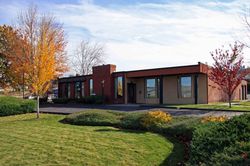Immediate Arrangements
Who can make funeral decisions?
In the State of Idaho, the person with the rights and responsibilities for funeral arrangements in succession is:
1. The deceased's specific directions if his/her estate has sufficient finances, these directions prevail
2. A person designated in a written document executed by the decedent
3. The person with Durable Power of Attorney for Health Care
4. The surviving competent spouse of the decedent
5. The adult children of the decedent - it requires a majority of the offspring to agree
6. The parents of the decedent
7. A person appointed by the courts
8. A person nominated by the estate in the will
9. Others entitled to inherit from the estate in order of their closeness of relation
*Please note the Order of Succession* - The law shows, for instance, that a "surviving competent spouse" has the authority to make these decisions above "the adult children of the decedent."
We understand that making the many decisions which come at a time of loss can be difficult. We offer our support by providing you with two options as you consider making immediate arrangements.
Please call us at 208-743-6541 to make arrangements in person with a caring funeral professional.
The Process of Funeral Planning
People choose the funeral actions that are right for them depending on their religious beliefs and convictions, their personal desires regarding funeral arrangements, their financial situation, and other reasons. Vassar-Rawls Funeral Home & Crematory can help you develop and customize funeral options to meet your individual needs.
Our professional services depend on the needs of the deceased and the deceased's surviving family. Funeral proceedings range from very traditional or liturgical to the more secular and personalized.
We spend time with the family members to determine what needs to be done, and review our General Price List as required by the Federal Trade Commission.
The three main decisions which must be made upon a death are:
Is there to be any viewing or visitation for the deceased? It has been customary for thousands of years to provide a time for family, friends and neighbors to pay their final respects to the deceased and the surviving family members. If this includes a public viewing, embalming may be a practical necessity.
1. Is there to be any viewing or visitation for the deceased? It has been customary for thousands of years to provide a time for family, friends and neighbors to pay their final respects to the deceased and the surviving family members. If this includes a public viewing, embalming may be a practical necessity.
2. Is there to be a gathering of some sort? This may range from a very religious ceremony with attendant funeral rites, to a more secular celebration of the person's life. If there is going to be a gathering, we help plan and implement the details.
3. What is preferred for the final disposition of the deceased's remains? Earth burial, cremation, green burial, entombment, donation to medical science, or donation to tissue banks are normally the main choices. Any of these can be done before or after a gathering or service.
Once these decisions have been made, we assist by arranging the time and place for the gathering, contact the participants, and coordinate music, flowers, ceremony details, newspaper releases, printed goods such as memorial folders and register books, produce a video from pictures taken during a person's life, and perhaps arrange for a reception to follow the gathering.
Not every person attends a church or is familiar with someone who is comfortable or able to conduct a funeral service. We maintain relationships with several local people who will meet with the family to provide the kind of funeral experience that is best for them.
We always contact the Social Security Administration, process the death certificate, explain and offer help with Veterans Affairs benefits, submit claims to burial plans, and assist with insurance processing. We strive to be thorough and timely in completing any details for the families we serve.




 920 21st Avenue
920 21st Avenue